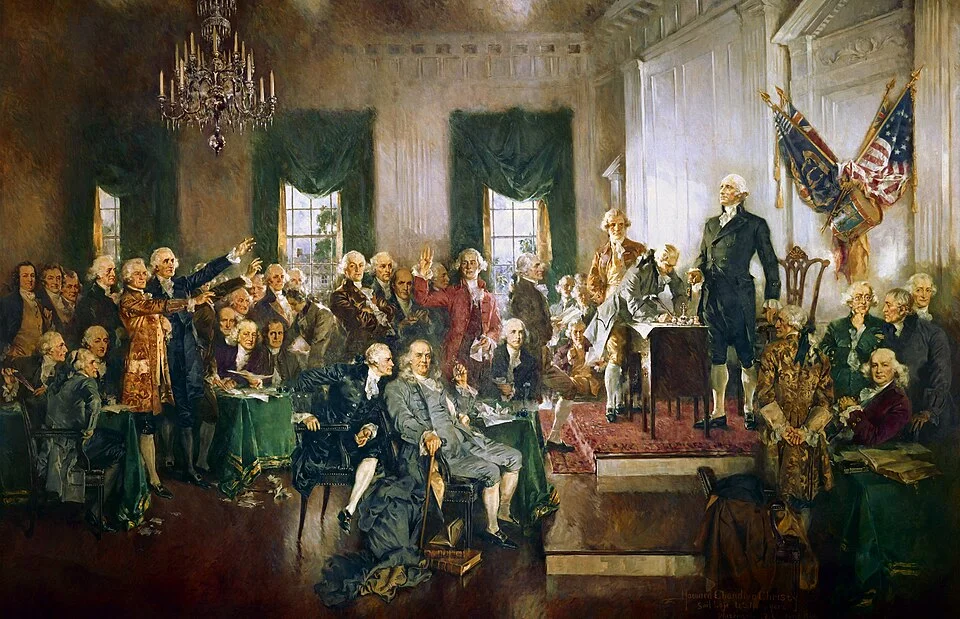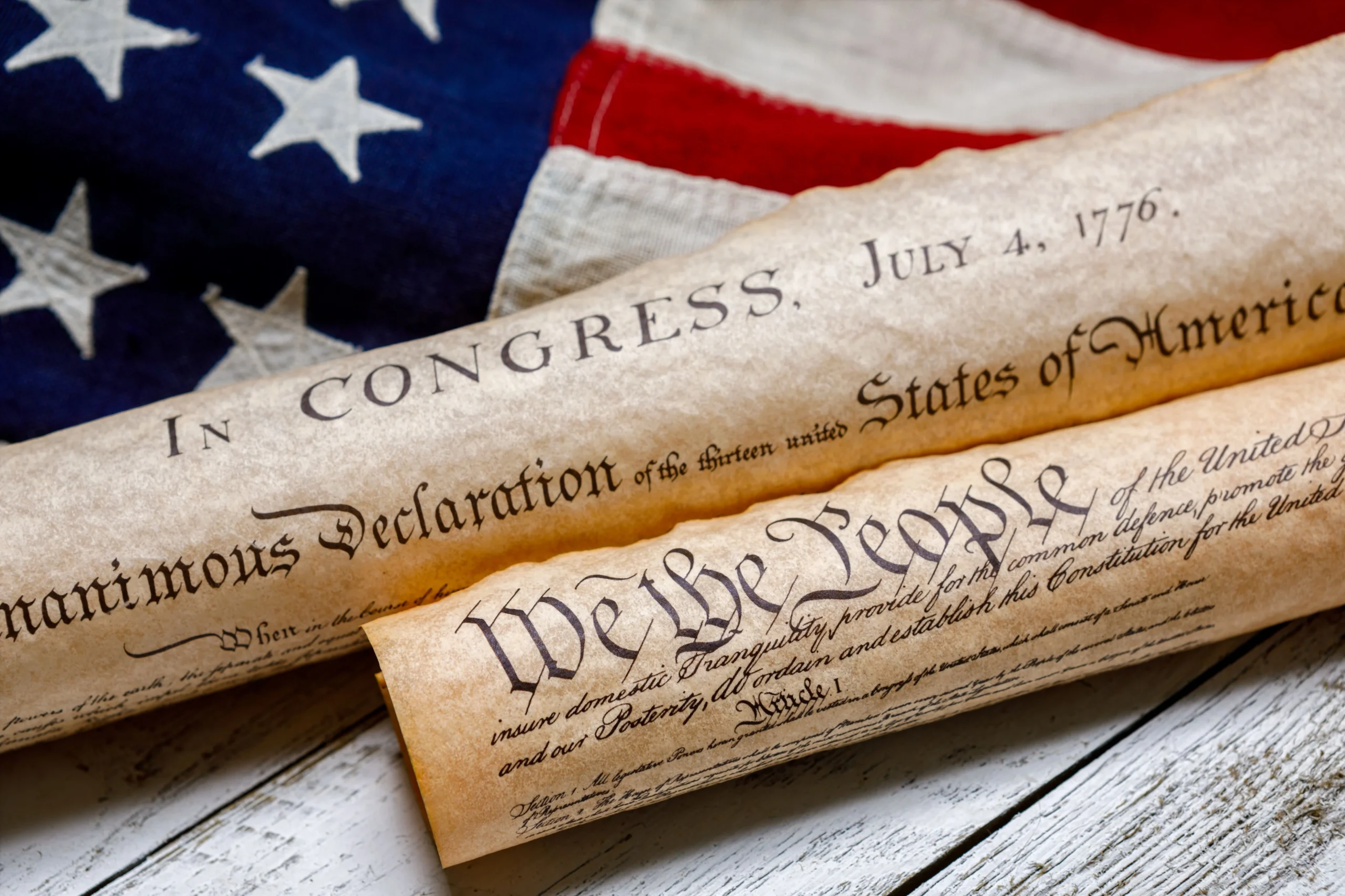The U.S. Constitution is signed September 17, 1787
The signing of the U.S. Constitution, by the delegates of the Convention of 1787, begins its long journey to ratification. The delegates had met for months creating a new government in secrecy. It was now being sent on to the Congress with the recommendation to send it on to the States for ratification.
But ratification was not a foregone conclusion. The Convention had created a new constitution rather than attempt to modify the old one to cure the problems facing our States. The Framers created a confederated republic using fundamentals from other systems. The public were faced with a new animal, and needed time to explore it, have it explained, and have questions answered.
The debates that raged through the States, in newspaper and flyers and in the ratification conventions, provide us with many insights into the views and understandings that Americans had of the new document.
It took nine months for the required nine States to ratify the new constitution and it took nearly two and a half years to get all thirteen States to ratify it.
Today we have people pushing for another convention to open up the U.S. Constitution for changes; great and small. The Constitution Party opposes these attempts that put the constitutional protections of our natural rights at risk, and we encourage everyone to contact their State legislatures to tell them to refuse to go along with such efforts. We also encourage those in States that have made application or passed resolutions, to contact their State legislatures to call for a recission.
Constitution Party Platform: Constitutional Convention
Letter of the President of the Federal Convention, Dated September 17, 1787, to the President of Congress, Transmitting the Constitution. In Convention, September 17, 1787.
Sir,
We have now the honor to submit to the consideration of the United States in Congress assembled, that Constitution which has appeared to us the most adviseable.
The friends of our country have long seen and desired, that the power of making war, peace, and treaties, that of levying money and regulating commerce, and the correspondent executive and judicial authorities should be fully and effectually vested in the general government of the Union: But the impropriety of delegating such extensive trust to one body of men is evident-Hence results the necessity of a different organization.
It is obviously impracticable in the federal government of these states, to secure all rights of independent sovereignty to each, and yet provide for the interest and safety of all: Individuals entering into society, must give up a share of liberty to preserve the rest. The magnitude of the sacrifice must depend as well on situation and circumstance, as on the object to be obtained. It is at all times difficult to draw with precision the line between those rights which must be surrendered, and those which may be reserved; and on the present occasion this difficulty was encreased by a difference among the several states as to their situation, extent, habits, and particular interests.
In all our deliberations on this subject we kept steadily in our view, that which appears to us the greatest interest of every true American, the consolidation of our Union, in which is involved our prosperity, felicity, safety, perhaps our national existence. This important consideration, seriously and deeply impressed on our minds, led each state in the Convention to be less rigid on points of inferior magnitude, than might have been otherwise expected; and thus the Constitution, which we now present, is the result of a spirit of amity, and of that mutual deference and concession which the peculiarity of our political situation rendered indispensible.
That it will meet the full and entire approbation of every state is not perhaps to be expected; but each will doubtless consider, that had her interest been alone consulted, the consequences might have been particularly disagreeable or injurious to others; that it is liable to as few exceptions as could reasonably have been expected, we hope and believe; that it may promote the lasting welfare of that country so dear to us all, and secure her freedom and happiness, is our most ardent wish.
With great respect, We have the honor to be, Sir,
Your Excellency’s most obedient and humble servants,
GEORGE WASHINGTON, President.
By unanimous Order of the Convention.
His Excellency the PRESIDENT of CONGRESS.
Source:
Documents Illustrative of the Formation of the Union of the American States.
Government Printing Office, 1927.
House Document No. 398.
Selected, Arranged and Indexed by Charles C. Tansill(1) Reprinted from Documentary History of the Constitution, Vol. II (1894) pp. I, 2. Back
(2) From Washington’s copy of the Journal of Congress (Vol XII, p. 164). Back



